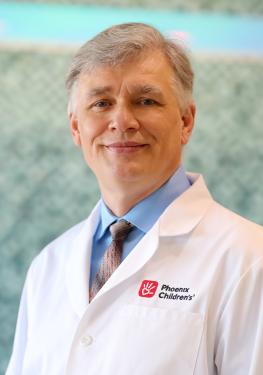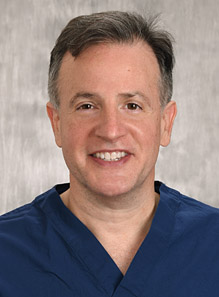1411-1420 of 2849 Results Found

Programs & Services
Early treatment is crucial for better outcomes in progressive neuromuscular disorders. With the establishment of Arizona's newborn screening for Spinal Muscular Atrophy (SMA), this initiative has enabled Phoenix Children’s to provide same-day genetic notification and next-day
Cardiopulmonary Exercise Testing
Cardiopulmonary exercise testing is done on a stationary bike or treadmill, depending on the child’s age, size and ability. The testing measures: How well your child’s heart, lungs and muscles work together during exercise Your child’s fitness level How much exercise your child
Doctor
Vladimir Kalinichenko, MD, PhD
Director, Phoenix Children’s Research Institute at the University of Arizona College of Medicine – Phoenix

Condition
Alcohol and Pregnancy The risks involved with alcohol use during pregnancy Drinking alcohol while pregnant is a leading cause of birth defects in a baby. Everything a pregnant person drinks also goes to the baby. Alcohol is broken down more slowly in the baby's developing body

Radiology Research
The Radiology division at Phoenix Children’s engages in primary radiology research endeavors and collaborates with other divisions to support their research initiatives. The division’s primary research projects primarily focus on body, fetal, neurological and interventional
Location
Phoenix Children's Hospital - Thomas Campus
1920 E. Cambridge Ave.
Rosenberg Plaza
Phoenix, AZ 85006

CME Session
NSGR - Innovation in Craniosynostosis and Head Shape Management - Dr. Ruth Bristol
Learning Objectives: Describe traditional treatments and new innovations in the management of craniosynostosis Identify the options for management of head shape anomalies Recognize head shape issues that do not require intervention
CME Session
Inflammatory Bowel Disease Multidisciplinary Conference
This multidisciplinary meeting will allow practitioners to share information on the latest IBD therapies, both medical and surgical, as well as implications of radiographic and pathologic findings in order to close gaps related to incorrect or untimely treatments.
